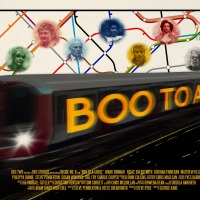 Dogwoof, out April 2
Dogwoof, out April 2
Director Matt Schrader interviews film score composers and other professionals involved in the soundtrack-making business, discovering how a score is made, the influences and the anxieties.
For anyone with even a fleeting interest in movie scores, this is a treat, whether you own a couple of CDs, go to concerts, write your own music or listen to isolated score tracks on DVDs. As someone who has collected and had a passion for the subject since I was a child, this is a fascinating way to spend ninety minutes, and probably the best film I’ve watched on the subject.
Starting with Marco Beltrami’s piano, sat on top of a shipping container and with strings stretched out to capture the movement of the wind, you know this is not going to be a regular film. While it does follow the chronological development of the film score, it pauses to talk to or about the key composers and their landmark scores. We discover why Steiner’s King Kong was such a big deal and how Williams’ Jaws and Star Wars changed the landscape forever.
I did not know that Alfred Newman’s classic Fox Fanfare was actually first rejected by Samuel Goldwyn of MGM fame (their loss) and many other little nuggets of information. Having been lucky enough to watch recordings in both Air Studios and Abbey Road, it’s great to go back inside the main halls and recording booths – Bond composer David Arnold shares that the former church is haunted by a ghost who spins the chairs!
The different roles of the music editor and the orchestrator are explained, how the rooms are set up with microphones, what spotting is, what motifs are… but it’s not only a beginner’s guide, it’s an expert masterclass as leading exponents explain their inspiration and anxieties, as well as who inspires them – they all love John Williams. It’s also a joy to see inside some of the composers’ studios – Trevor Rabin and Hans Zimmer have racks of guitars and cool furnishings.
Archival footage of John Williams spotting ET with Steven Spielberg is very insightful into the process that the two share, as is film of the composer conducting the LSO for The Phantom Menace’s Duel of the Fates. And check out those crazy instruments that composers keep in their studios to create exotic new sounds!
Verdict: A top score for Score – a perfect exploration of why film music exists and what it is trying to achieve, through the personal and honest testimony of those currently leading the field. By the time you reach the ‘Remembering James Horner’ section over the closing credits you might be holding back a tear. 10/10
Nick Joy











